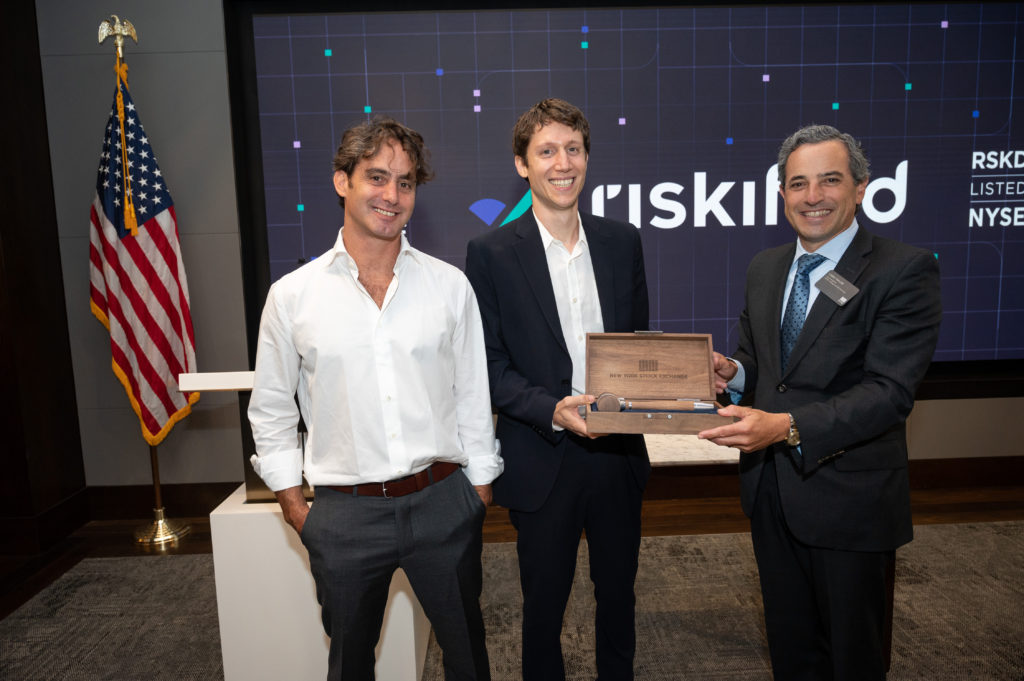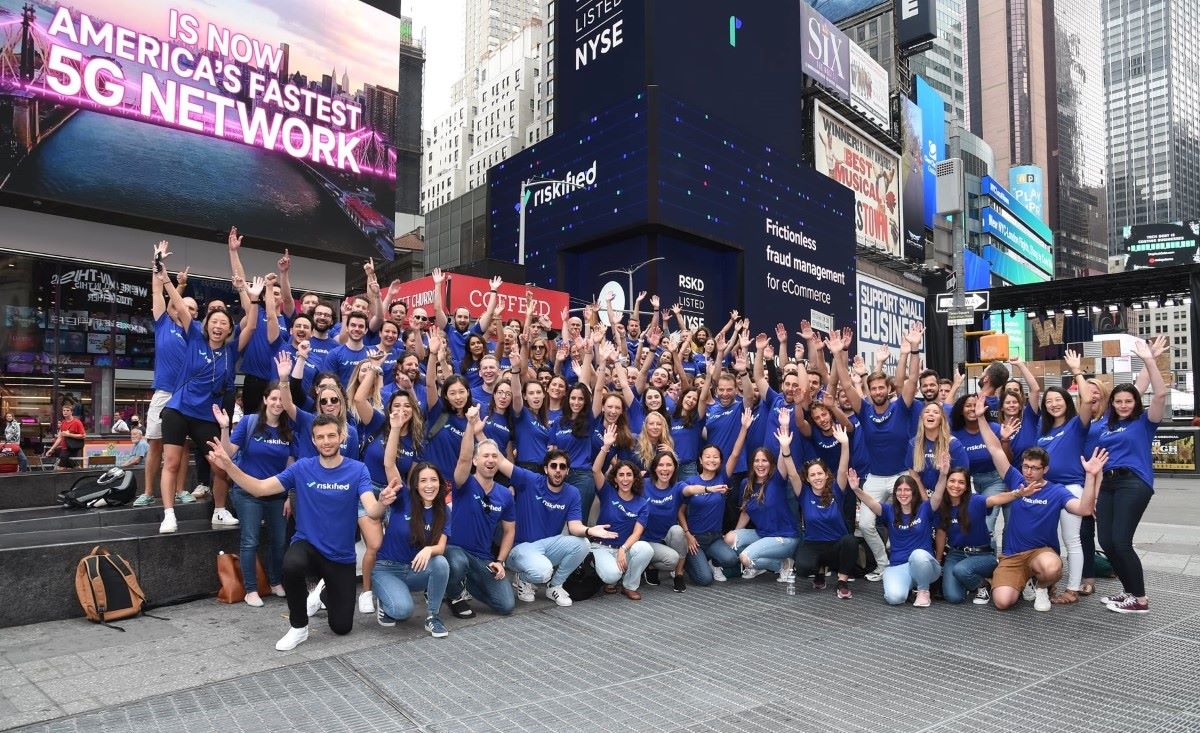How Riskified Achieves Success by Solving Blind Spot for Ecommerce Merchants
As e-commerce has get more popular, fraud has become a more pressing problem for merchants. However, traditional fraud management solutions are inaccurate more often than we might imagine. In fact, false declines (such as legitimate transactions mistakenly declined) will cost businesses $720 billion by 2022, and losses due to fraud (like illegitimate transactions mistakenly approved) will total $25 billion by 2024, according to Nasdaq.
Founded by Eido Gal and Assaf Feldman in 2012, Riskified is the pioneer of chargeback-guarantee fraud prevention – a solution in which every transaction approved by Riskified carries a full, money-back guarantee for the merchant in case of a fraud-related charge-back. Riskified’s success is demonstrated by its growth. It has more than quadrupled its annual revenue in each of the last two years.
Market Fit & Timing: The Very First Steps to Grow
Eido Gal and Assaf Feldman started Riskified because they believed merchants were turning away legitimate customers out of fear of fraud. They wanted to create a new solution that took the best of what machine learning had to offer to make more accurate decisions and approve more orders. Since its foundation, Riskified first product is still its flagship.
“We still believe in the vision, and the core of it has not changed.” – said the two co-founders.
What has changed is Riskified’s performance, which is far beyond where it started. As the platform review more orders, it gets smarter, and it decisions get more accurate. Add to that is the constant reinvestment in research and development, and its chargeback guarantee fraud solution is much more sophisticated, faster and better performing than what it first took to the market in 2013.
Currently, Riskified works with approximately 2,000 major e-commerce merchants around the world, analyzing customer behavior for six years already to accurately identify fraudulent online orders. By precisely distinguishing legitimate purchases from fraud based on machine-learning from 500,000 daily transactions, Riskified protects merchants and ensures that customers do not see their payments incorrectly rejected at the online checkout.
As far as creating that market fit, the biggest challenge that they faced – according to the two founders – was less about the product but more about education. When Gal and Feldman first introduced Riskified, merchants only know about fraud losses in terms of chargebacks – which are the fraudulent orders that they incorrectly approved and then had to reimburse. They did not realized the more significant losses which were coming from the many legitimate orders they were turning away. In order to expand the product footprint, Gal and Feldman had to change the conversation.

“We had two big challenges in the first 24 months. The first — we had to change how merchants thought about fraud prevention. We had to convince merchants that they had a problem in that they were turning away good customers. The second was data gathering. We knew that the more orders we saw the more accurate we could be, and we needed a big pool of data in order to automate our solution. But gathering that data takes time and clients.”
The startup overcame these challenges by offering merchants something too good to pass up. Its early sales pitch became: “Send us the orders you were going to decline. We’ll review them and find the treasure in your trash. And then we’ll guarantee the orders we recommend approving.” It was incremental revenue with absolutely no risk for merchants. Doing that also got Riskified’s foot in the door and allowed it to begin collecting the data it needed.
Merchants was understanding they needed to gear up and drive growth – Riskified’s message and business model really resonated. Instead of giving them a tool, this platform actually gave them a solution and increased sales. At the end of the day, because it took more risk, it was super effective for the time it went in and the maturity that was in it.
“Riskified had great timing- we are not cyber security, rather e-commerce enablement and it was just an amazing time for launching a solution like ours. We changed the approach to payment fraud in e-commerce and tackled it more as an enablement not a protection at the right time.” – said Gal and Feldman.
Once the team was able to show merchants what they were missing, the product took off. Over the next five years the team grew to almost 500 staff and $170M of net revenue
Increase Automation with AI-Based Technology
Basically, Riskified’s technology uses behavioral analysis, proxy detection, elastic linking, and machine learning to detect and prevent fraud. This platform backs transactions approved by its technology with a chargeback 100% money-back guarantee in the event of fraud.
Compared to traditional solutions, Riskified next-generation platform integrates more deeply with merchants’ infrastructure, logging data from the front-end e-commerce site, and back-end systems for payments, shipping, and customer relationship management. Riskified then leans on artificial intelligence (AI) to correlate that data — hundreds of variables per transaction — with over 1 billion past transactions. In doing so, the company should be able to identify fraud with great precision.

In fact, Riskified can automate the approval or denial of online orders with 99.8% accuracy, according to management. The 10 largest businesses on its platform have seen revenue rise 8% due to fewer false declines, and they’ve seen fraud-related operating expenses fall by 39% due to fewer incorrect approvals. That value proposition makes Riskified’s platform very sticky.
In 2020, Riskified kept 98% of its customers, and the average customer spent 17% more. That translated into solid financial results. Gross merchandise volume (GMV) reached $63.4 million, up 60%. Revenue climbed 30% to $169.7 million, and the gross margin rose five percentage points to 55%.
Aim at Diversity Recruiting
Besides its pioneering business model and advanced technological platform, hiring and promoting at Riskified were also special: they were always about ability. They looked for smart, engaged, and curious people rather than focusing on a specific title. The company sees the employment of new immigrants – who understand the culture and nuances of Riskified’s target markets – as a key reason for its success. That made a huge difference.
“We have ambitious plans because we have high expectations for ourselves. The work we do now will define the future success of Riskified.” Eido said in 2018. With that in mind, Riskified has one of the highest immigrant employment percentages in the Tel Aviv start-up scene.
“Many technology companies bring in native language speakers primarily for the language. Here, there’s a lot of thought put into understanding foreign market culture,” Assaf Dargan, director of communications EMEA and APAC at Riskified, told The Jerusalem Post at the company’s open-plan Tel Aviv office.
Taking a look into Riskified’s multinational workforce, it is that clear the company focuses more on the individual and his potential rather than a checkbox-based approach based on their résumé.

“As soon as I started the job interview at Riskified, it was less about my past but what I can offer,” said Canadian-born Tyler Golden, one of the company’s business development representatives.
Riskified looked at the individual, rather than what he have on paper professionally. For example, London, UK-born account executive Gabi Kobrin arrived at Riskified with political rather than corporate experience after working at the British Embassy in Tel Aviv. He even did not have a strong sales background, which is one of his major task at the company.
“Riskified doesn’t look at whether you have specific qualifications to fit a sales role, rather whether your skills, your background and your abilities,” Kobrin said. “One of the reasons for the company’s success in recruiting immigrants is due to the company’s highly professional environment. I expected it to be an Israeli balagan mess,” she added jokingly.
“For me, there is a great balance. Culturally, everyone is accepting and open.” – Ephraim Rinsky taught at a New York university and wrote two detective novels before starting work as a content writer at Riskified.
Building on its existing success, Riskified is currently looking to expand into more areas in Europe and Asia. As it expands and seeks insight into new markets, the international diversity of its employees is also likely to grow.
Expanding After the $165M Funding
In 2019, Riskified announced that it has secured $165M in Series E Funding round led by General Atlantic, making it the latest fintech to reach unicorn status as it reached a valuation of $1B at that time. Goldman Sachs were the sole placement agent during the round. Other investors who also participated were Qumra Capital, Pitango Venture Capital and Entrée Capital.
“Riskified began as a new and unproven approach to fraud prevention and payments. Achieving success required merchants to believe in our vision and partner with us. Today’s announcement is a testament to those partnerships and the leadership position we attained in this important market,” said Eido Gal. “These funds will allow us to continue to develop innovative solutions that help move commerce forward.”
The technology company has experienced hyper growth over the last five years by as much as 250% CAGR. The fraud prevention platform has a number of well-known customers, including: Lastminute.com, Gymshark, Megabus and MatchesFashion
“Riskified is the rare blend of realized performance and considerable potential. The company’s innovative model has enabled it to deliver significant ROI to its customers and partners, with a clear runway ahead for strategic expansion of its geographic footprint, product offering, and consumer base,” said Tanzeen Syed, Managing Director in General Atlantic’s Technology sector. “We are thrilled to partner with Eido and the Riskified team to reinvent the payments ecosystem and add real value for customers.
Indeed, this company has gained continuous expansion after the funding. In July last year, Israeli cybersecurity startup Riskified completed an IPO on the New York Stock Exchange, pushing the fraud prevention company’s valuation over $4.3B at its peak. Riskified raised $367.5 million in this IPO on the NYSE.

Although the bulk of Riskified’s business currently comes from clients in the United States and Europe, its presence in Asia is growing rapidly. Between 2018 and 2020, Riskified’s billings in the Asia Pacific region grew at a compound annual growth rate of 160%, according to the company’s prospectus. The company opened an office in Shanghai in April 2020 and is growing its presence throughout Asia in places like Singapore and Australia.
“Overall, our system is very scalable across payments and geographies,” Gal explained, as the company is opening additional offices in London, Mexico, and Brazil. Riskified’s ambitions are global, with an eye on Southeast Asia’s rapidly developing e-commerce ecosystem shaped by companies like Lazada, Shopee, and Tokopedia.
“Southeast Asia is evolving so quickly. We’re seeing new forms of payments with digital wallets and cash on delivery. It’s just really exciting to see the growth trajectory, even if it’s starting at a relatively lower overall base,” Gal said.
The Bottom Lines
Recently, e-commerce accounts for just 12% of U.S. retail sales, according to the Commerce Bureau. And eMarketer expects annual global e-commerce sales to increase by more than $2 trillion by 2025 from where sales are today. Those numbers suggest room for companies in this sector to grow more. Therefore, I reasonably expect that Riskified will continue to expand, in terms of its outstanding model.









